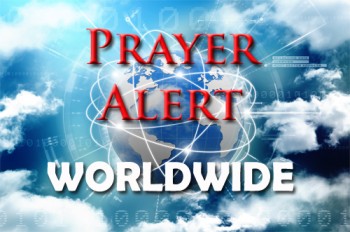Displaying items by tag: Buddhism
Global: the Buddhist world
There are about 400 million Buddhists in the world today. God loves each and every one of them. His heart’s desire is that they would be reconciled to Him through Jesus. Buddhism is the dominant religion in over a dozen Asian countries including mainland China and Japan, while large Buddhist populations live in North Korea, Nepal, India and South Korea. Buddhism revolves primarily around suffering. Its founder was born nearly 600 years before Christ. In its 2,500-year history, Buddhism has been one of the great religions of the world. The main expansion occurred during its first two millennia, and Buddhism has made no significant geographical expansion in the last five centuries. Revitalisation and missionary movements of Buddhism are currently on the increase. See
Praying for Buddhists
The idea of Buddhism (and Hinduism) as a ‘religion’ is partly an invention of early Western missionaries. Later the concept was taken up by Buddhists themselves. Buddhist ideas are woven into a wide tapestry of belief, ritual, filial piety and morality that often involve the occult, other gods, and ancestors. Few practising Buddhists have turned to Christ, except in Cambodia, China, Laos, Mongolia, South Korea, and Vietnam, which have growing churches or substantial Christian populations. Yet churches are being planted among Buddhists, and there are recurring reports of monks studying the New Testament and meeting Christ. Pray for the remaining Buddhist peoples of the world to encounter Christ, who is ‘desired by all nations’ (Haggai 2:7). Buddhist mindfulness, types of meditation, and statues are being adopted around the world. Pray for fresh Christian approaches to reach those seeking the peace that only Christ can give. See
Sri Lanka: freedom of worship
Sri Lanka’s constitution affords Buddhism, which is practised by 70% of the population, ‘the foremost place’. This elevated status is exploited by a powerful ethnic Sinhalese and Buddhist nationalist lobby, which demands rights and privileges for itself at the expense of other religions. The lobby, which is particularly opposed to Christianity, campaigns for the introduction of anti-conversion legislation that would hinder Christian activities. Christians face difficulties in building churches and might be ordered to stop activities; they experience discrimination in education, and many live in desperate poverty. The government plans to introduce legislation prohibiting ‘cults’; this could threaten evangelical churches, which are not recognised by the state. Christianity has a long history on the island, pre-dating the arrival of Westerners by many centuries. Tradition claims that Sri Lanka was first evangelised by the apostle Thomas.


